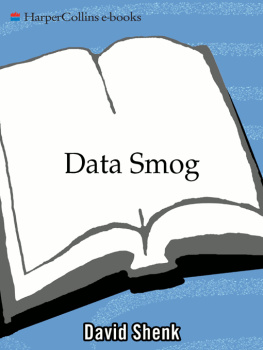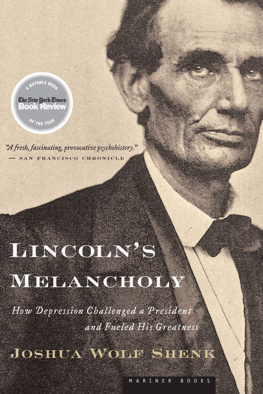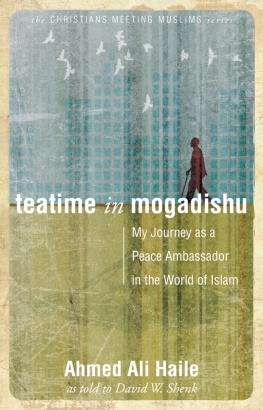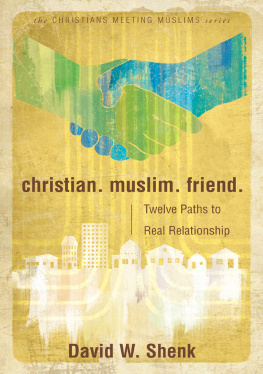David Shenk
DATA SMOG
Surviving the Information Glut
REVISED AND UPDATED EDITION

For Sol Shenk
and Bb Wolf
Mr. Mouche climbed on his horse and rode it beautifully.
You must be proud of yourself, said the professor.
No, replied Mr. Mouche.
Still, your horse goes exactly where you want it to go, said the professor.
Thats because I always want to go exactly where the horse wants to go, replied Mr. Mouche.
Jean-Luc Coudray
- Information, once rare and cherished like caviar, is now plentiful and taken for granted like potatoes.
- Silicon circuits evolve much more quickly than human genes.
- Computers are neither human nor humane .
- Putting a computer in every classroom is like putting an electric power plant in every home.
- What they sell is not information technology, but information anxiety.
- Too many experts spoil the clarity.
- All high-stim roads lead to Times Square.
- Birds of a feather flock virtually together.
- The electronic town hall allows for speedy communication and bad decision-making.
- Equifax is watching.
- Beware stories that dissolve all complexity.
- On the information highway, most roads bypass journalists.
- Cyberspace breeds libertarianism.
If scientific discovery has not been an
unalloyed blessing, if it has conferred on
mankind the power not only to create
but also to annihilate, it has at the same
time provided humanity with a supreme
challenge and a supreme testing.
John F. Kennedy, 1963
S omething marvelous has been happening to humankindnot just in the last three or four years with computers and the Internet, but more broadly in the last several decades. Information is moving faster and becoming more plentiful, and people everywhere are benefiting from this change.
But theres a surprising postscript to this story. When it comes to information, it turns out that one can have too much of a good thing. At a certain level of input, the law of diminishing returns takes effect; the glut of information no longer adds to our quality of life, but instead begins to cultivate stress, confusion, and even ignorance. Information overload threatens our ability to educate ourselves, and leaves us more vulnerable as consumers and less cohesive as a society. If were going to make the most of this spectacular information revolution, we need to work hard to counteract these unintended consequences.
This is not the first time we have been confronted by the unpleasant side effects of abundance. We who live in the most sophisticated and successful nation on Earth also routinely find ourselves burdened by problems of excess. Now, for all the wonders technology, a menacing cloud of data smog has drifted in. In these pages, we will explore its unwholesome properties and suggest some healthful remedies. This book aims to be a reminder of the critical distinction between information and understanding, and it demonstrates why you dont have to feel personally overloaded with information to be a victim of the information glut. Data Smog is also designed to counteract much of the corporate hype surrounding the information revolution. This book is neither techno-utopian nor neo-Luddite. It is technorealist appreciating the benefits of technology while recognizing and responding to its drawbacks.
For claritys sake, the book is divided into four sections. Part 1, Signal to Noise, reviews the historic transition from information scarcity to information glut, and examines how microtechnology and stimulus overload affect the human animal. How much complexity and information are we designed to handle? When were flooded with data, what happens to our memories? Our relationships? Our sense of ourselves?
Part 2, Virtual Anarchy, explores the less obvious, but no less serious, social and political consequences of the information revolutiona culture beset by constant upgrades, a troublesome flood of statistics, an upward spiral of noise, hyper-specialization, and a democracy arguably too plugged in for its own good.
Part 3, A New Order, outlines the new power dynamics that arise out of the information chaos. Data smog is an extremely hospitable environment to a medley of unsavory characters and powerful industries. To them, information glut is not a vexing problem, but a fresh opportunity.
Part 4, A Return to Meaning, suggests a path toward a more intelligent tranquillity. Specific government action is suggested, along with a number of personal steps we can all adopt in order to become empowered by information instead of being smothered by it. By taking stock now, perhaps we can help to clear the air and make way for a new information ecology.
In the information age, there can be
too much exposure and too much
information and too much sort of
quasi-information. Theres a
danger that too much stuff cramming in
on peoples minds is just as bad for
them as too little, in terms of
the ability to understand,
to comprehend.
Bill Clinton
I opened the front door and unlocked the iron gate. A man came into my home bearing a prolific new machine, an appliance I mistook to be generous in much the same way that people frequently mistake credit cards for currency. It was the infancy of my career as a freelance writer, in Washington, D.C., and somewhere in my enthusiasm for the latest generation of electronic tools, I had gotten the old saw about knowledge and power turned around in my head: I was thinking that information was power. I now regard this as one of the great seductive myths of our time and do not feel so silly about falling prey to it; I think it happens to people all the time.
A friend had mentioned this affordable new electronic wire, the Federal News Service, which provided transcripts of key political and cultural events. I felt sure that it would give me a leg up. The pleasant man installed a small off-white printer on a plastic stand on the right rear corner of my desk. Below the stand, he plopped a box of several thousand sheets of perforated paper. He pushed a few buttons to run a test, wished me luck, and was off.
I already had a printer for my computer, of course; this second one stood on its own. It had an antenna in the back, with a small radio transceiver box. Every morning, the printer spat out a roster of the transcripts it had to offer. All the interviews from the morning talk shows, available moments after they had been broadcast. All the major speeches from senators, ambassadors, and other Washington heavies. Absolutely every utterance from the White House. Then it started spitting out the transcripts themselves. A sea of information. I felt plugged in. Without ever leaving my bedroom/office, I felt I had arrived.
Every morning, it printed. And every afternoon. And every evening. And every morning again. In a week, I was running my own private recycling service.
Newsprint was a healthy part of the pile, too. I was reading three papers each morning, along with an abundance of periodicals. Without realizing it, I had at some point made an important (and quite common) strategic decision about how to live in a world that more and more resembles a library without walls, containing more information than one person could ever hope to process. I had decided to confront the rushing tide head on, to try to keep up with the new and speedy, and to more or less disregard the old and slow. I read my newspapers and magazines, my e-mail and my wire services; I watched Cable News Network; I stopped spending time with books and other cumbersome material that felt more like yesterday.







